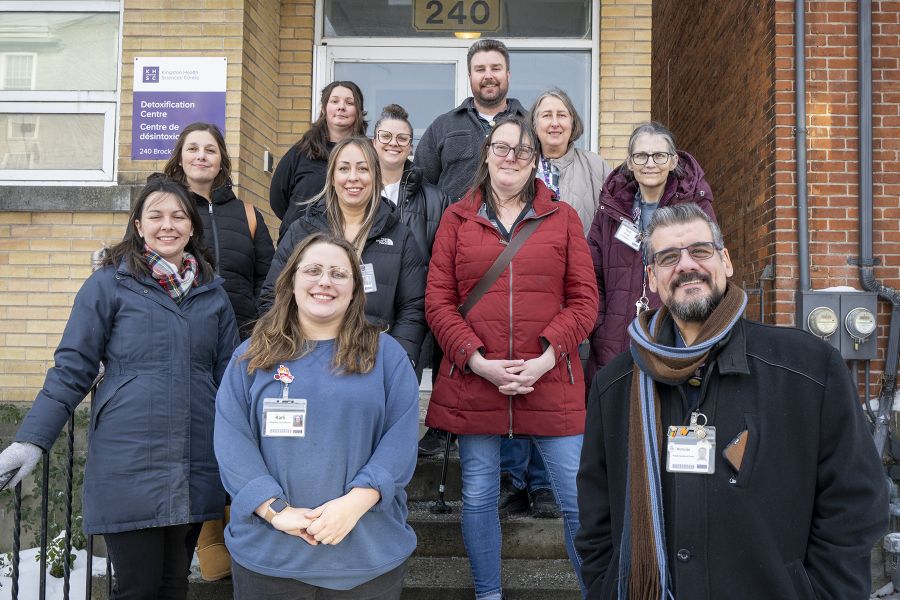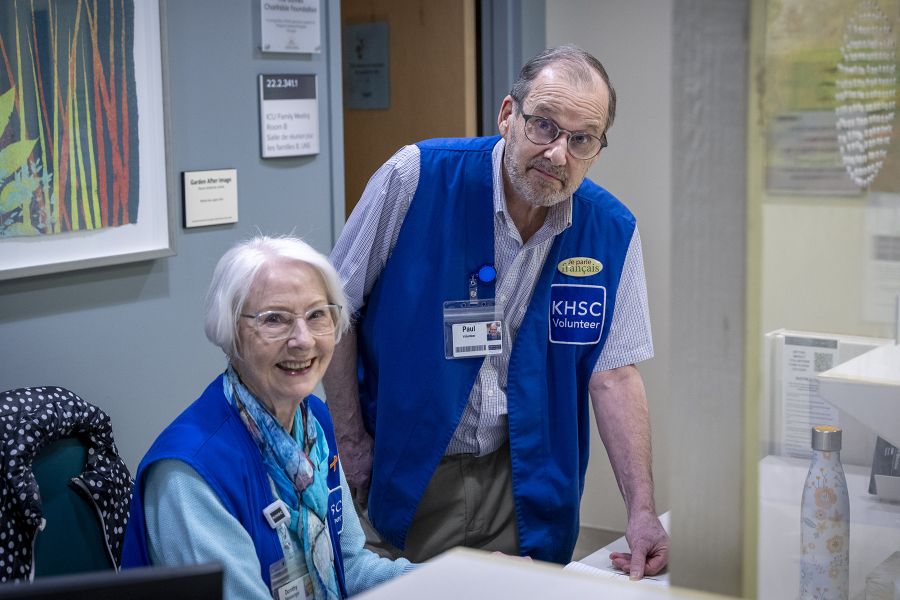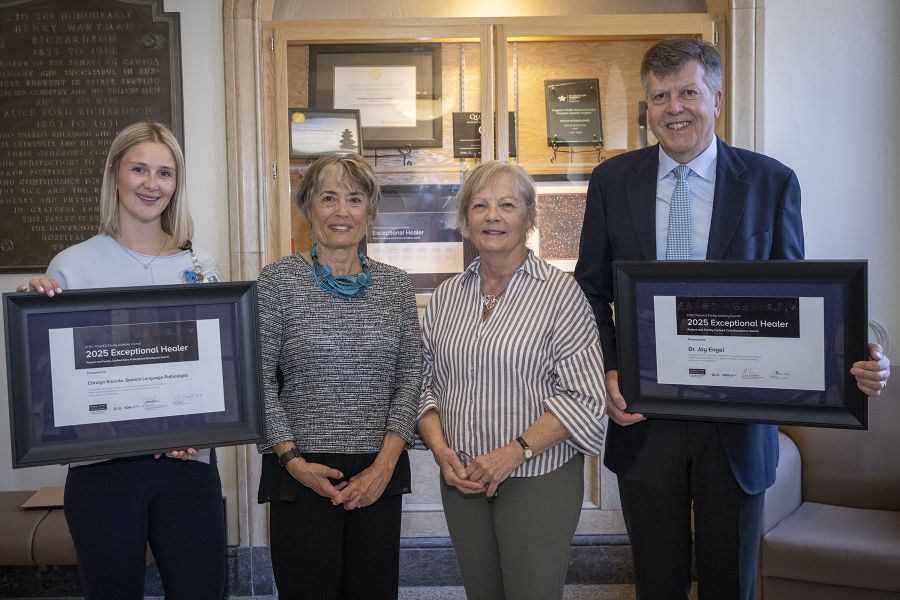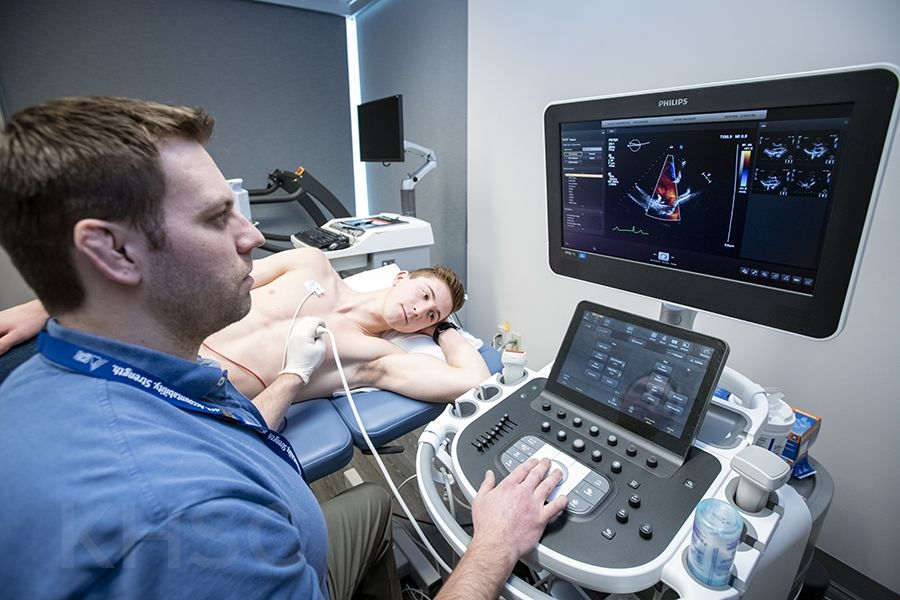
Wait times for certain specialized tests are not a new or uncommon challenge for patients and care providers across Ontario. However, an innovative new partnership between Kingston Health Sciences Centre (KHSC) and Queen’s University is hoping to change that.
As part of the new Queen’s Cardio Pulmonary Unit (QCPU), located on the Queen’s University campus, a satellite echocardiography (also known as an ECHO) lab has been created for patients of KHSC. The creation of this satellite clinic means there are now three locations where patients can have ECHO tests completed – Kingston General Hospital site, Hotel Dieu Hospital site and now the QCPU.
“The opportunity to work with Queen’s and have a satellite site and help relieve the wait times for our patients has resulted in a great partnership,” says Reg Hart, Director, Cardiac Program at KHSC. “Having the option to see patients at the satellite site will also allow us to focus on the specialty echocardiogram tests that are being requested while meeting our current wait list demands.”
Through this partnership, KHSC staffs the satellite ECHO lab with a receptionist and cardiac echo sonographers who have access to the new facilities and equipment required that are provided by Queen’s University. In return, some of the clinical work done at the satellite clinic is used to help inform research work that is also housed within the QCPU.
With patient consent, this means that data and information from some of the echocardiogram tests will be shared with the scientists and researchers also housed in the QCPU to help advance work and investigations in the cardiac field. This unique cross-collaboration of patient care and research will not only help with the wait times patient face for these important tests but it also supports research that can lead to advances in cardiovascular health.
“Without this partnership it would have been virtually impossible to offer a clinical grade echocardiography for both patients and research subjects in a single facility. The partnership with KHSC is mutually beneficial. We are providing space and equipment and they are providing the talented sonographers and registration clerks that allow us to make the clinical service work,” says Dr. Stephen Archer, Head, Department of Medicine at Queen’s University. “This is an innovative service which serves the common good and it’s very exciting that under one roof we can meet the clinical needs of patients while catalyzing research.”
For one such clinician researcher the value of having clinical care side-by-side with researcher cannot be overstated.
“What’s important with this facility is that it allows me to provide clinical care while advancing the research work I’m focused on that ultimately benefits patient care. If I have an idea that can take our clinical work to the next level the scientists are next door to help me do that,” says Dr Amer Johri, physician and clinician scientist at KHSC. “We’re able to learn together on how research can enhance the clinical care we provide to patients and then how we can learn about patient care which provides ideas for patient-oriented research.”
The unique nature of this partnership between an academic health sciences centre and university would not been possible without the support of many individuals across KHSC and Queen’s University.
“We wouldn’t have been able to open the doors to this satellite centre without the work of the team at KHSC, from frontline staff all the way to executive and our board, this was a partnership that resulted out of the work of many, many individuals and most importantly, the highly valued relationship with Queen’s University,” says Hart.
That sentiment is echoed on the Queen’s University side as well.
“I’m proud of the KHSC and Queen’s team, from our frontline care providers to scientists, who have embraced this partnership and worked hard to make it possible,” says Archer. “”There’s an awful lot of people who can take credit for creating and staffing this new satellite echo lab. It’s an exciting time to be part of both organizations and I am proud that they are both willing to step up and do the right thing for patient care and research.”
Gallery
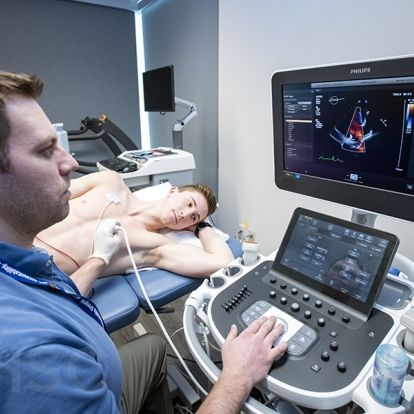
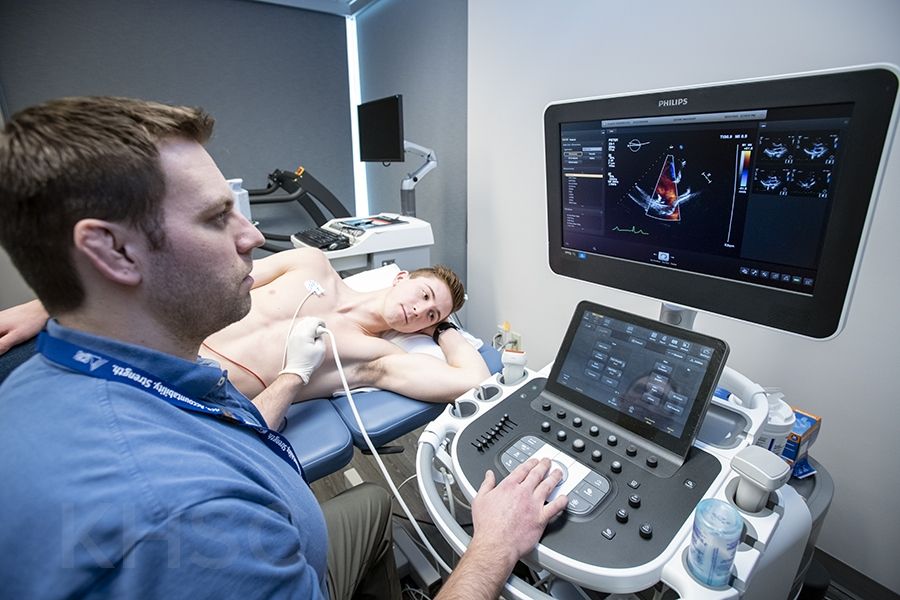
Under this partnership the hospital and patients come out ahead by gaining access to a state-of-the-art new facility with new equipment that is fully integrated with the main KHSC ECHO lab. Queen’s also wins by getting the support of expert sonographers

